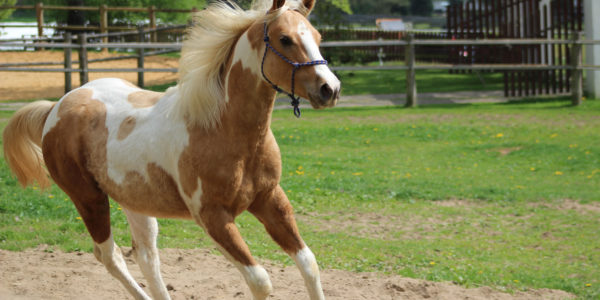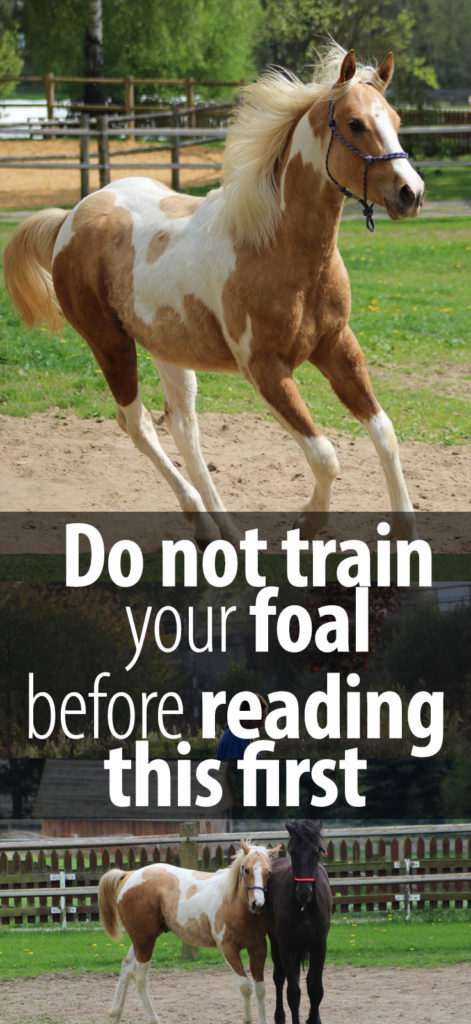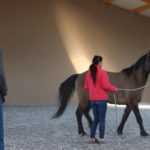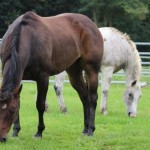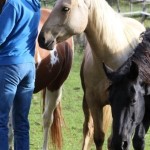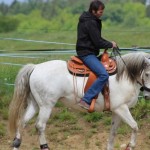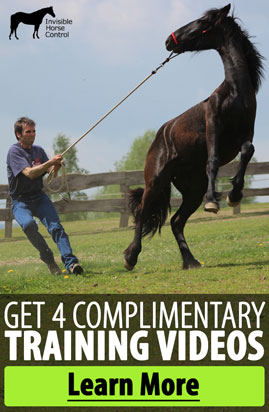Foal training is important because it shapes the way your horse is going to be in the future.
If you have foal you have probably been wondering when should you start working with him. Should you just leave him alone with other horses in the pasture until he is 2 – 3 years old, or should you already start doing something with him once per week before that?
Even a foal should learn certain things
I believe that a foal should be able to:
- Walk with you on a lead rope.
- Lift his feet when you ask him to.
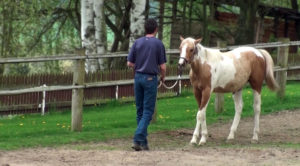 He should also know that you are not his toy. Basic foal training and learning these simple things should not take more than a few days.
He should also know that you are not his toy. Basic foal training and learning these simple things should not take more than a few days.
However, that doesn’t mean that your foal is not going to learn anything else during his first two years of life. He is going to be learning much more than you think.
He will learn that the world he lives in has certain rules, he will learn what is acceptable for him to do to other horses or to humans. He will learn certain boundaries.
Should you leave your foal with other horses in the pasture?
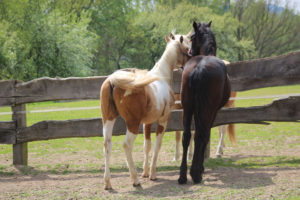 If you leave your foal in a pasture with other horses he is going to learn from them. They will show him what is an acceptable behavior and what is not. Other horses will do a lot of foal training for you. The way other horses can approach this “training” can sometimes seem a bit harsh.
If you leave your foal in a pasture with other horses he is going to learn from them. They will show him what is an acceptable behavior and what is not. Other horses will do a lot of foal training for you. The way other horses can approach this “training” can sometimes seem a bit harsh.
However, when you start working with a young horse that already learned to follow some rules in a herd he is going to be much more careful about discovering what you want and whether you are going to be the boss or if he is going to be the boss. In general working with a foal like that is going to be quite easy.
What happens when you start too soon?
Another possibility is that you want your foal to learn more things sooner.
For example, take him for walks so he gains confidence and is less likely to get scared. However, your foal is not going to be full of excitement about what you are going to show him today and what he is going to learn. He is going to already start discovering the boundaries of what he can and cannot do to you. He is not going to wait until you take him to a round pen and start working with him over there.
He might try to bump into you with his head, he might see what happens when he tries to run away and he will probably try whether you are going to going to do a step back if he pushes you or even rears in front of you.
If you don’t react correctly and with just the right intensity you will soon discover that you are teaching your foal something completely different than you thought and then you want.
If you react wrong, instead of teaching your foal to respect your space and the pressure you create, he will learn that it is ok to bump into you, that he doesn’t have to move away when you ask him to, and he will learn how to do it so you go where he wants and how to avoid going where you want to go. He might also learn how to ran away while you are trying to walk with him on a lead rope.
Horses learn by observing your reactions on their behavior.
Things to remember about foal training!
-
1
You should have a clear idea of what you want your foal to learn and how you want him to behave.
You should know what you are going to tolerate and what you are not going to tolerate. You should have a clear idea of what you want to teach him and how you want to teach him.
-
2
Realize that you are teaching something every time you are near your foal
You are teaching your foal new things not just when you go with him for a walk or work with him in a round pen. He learns from you everytime you get near him. If you always react the same, and it doesn’t matter if you are in a round pen or if you are just hanging out with your horse in a pasture, he will understand you better and he will be able to understand what you want much quicker.
Horses do not see a difference between the time when you are working with them in a round pen, trying to teach them something, and between the time when you are just hanging out with them in a pasture.
If you demand certain behavior from your horse while you are in the round pen, but then you do not require the same while you are in a pasture, your horse is going to get confused and he will keep trying where the boundary really is.
Foal training doesn’t just happen when you “go training” it happens every time you are near your horse.
Ïf you know what you want your foal to learn and how are you going to teach him, your whole training process is going to become much easier. However, if you are not consistent and unsure about what you want from your foal, you are going to make it difficult for yourself in the future.
If you enjoyed this article CLICK HERE to get my complimentary free video training series
